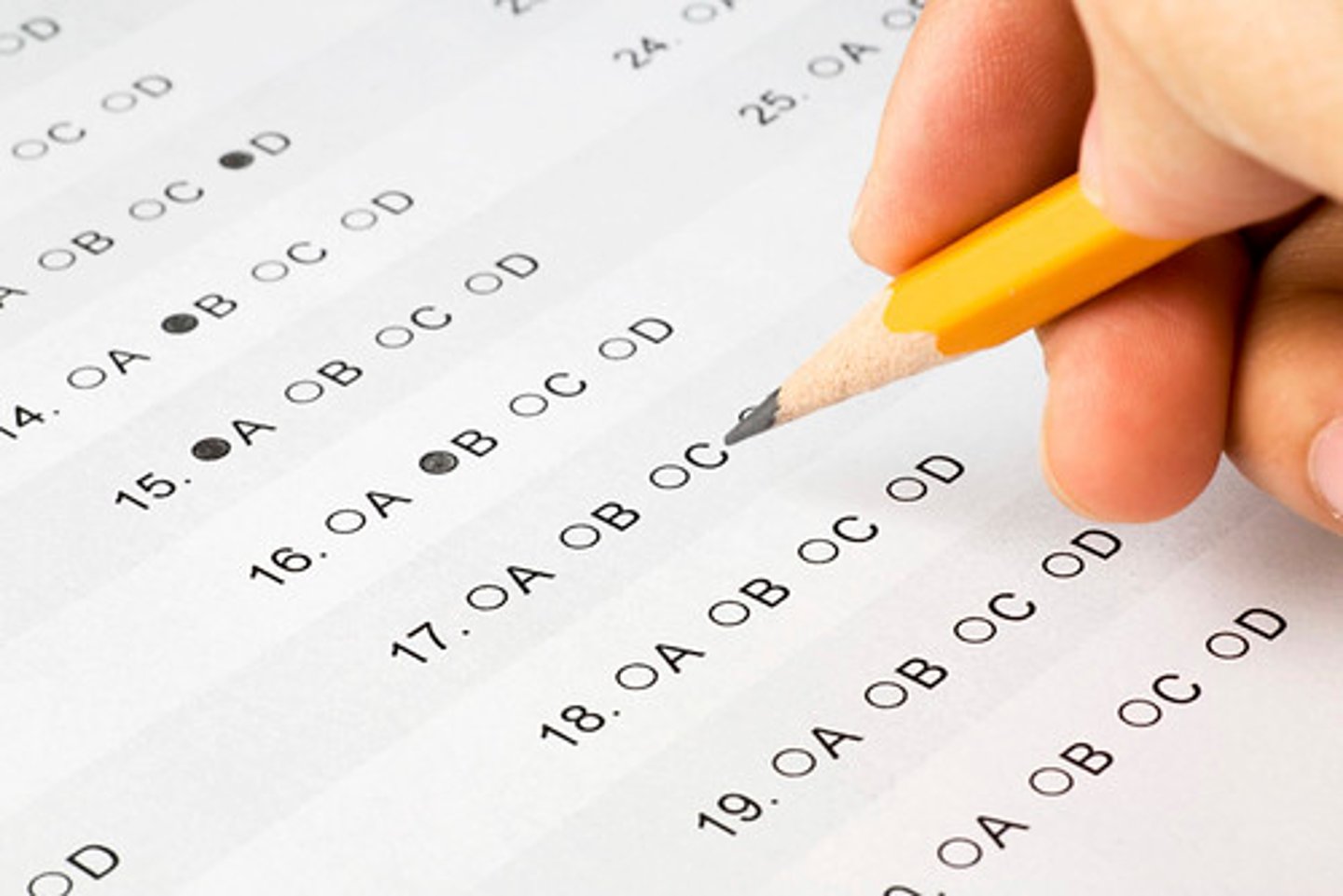Intro to Psychology: Unit 2 Flash Cards
1/42
There's no tags or description
Looks like no tags are added yet.
Name | Mastery | Learn | Test | Matching | Spaced |
|---|
No study sessions yet.
43 Terms
Attribution
The process of assigning a cause to someone's behavior, essentially deciding whether a person's actions are due to internal factors (like their personality) or external factors (like the situation they are in)
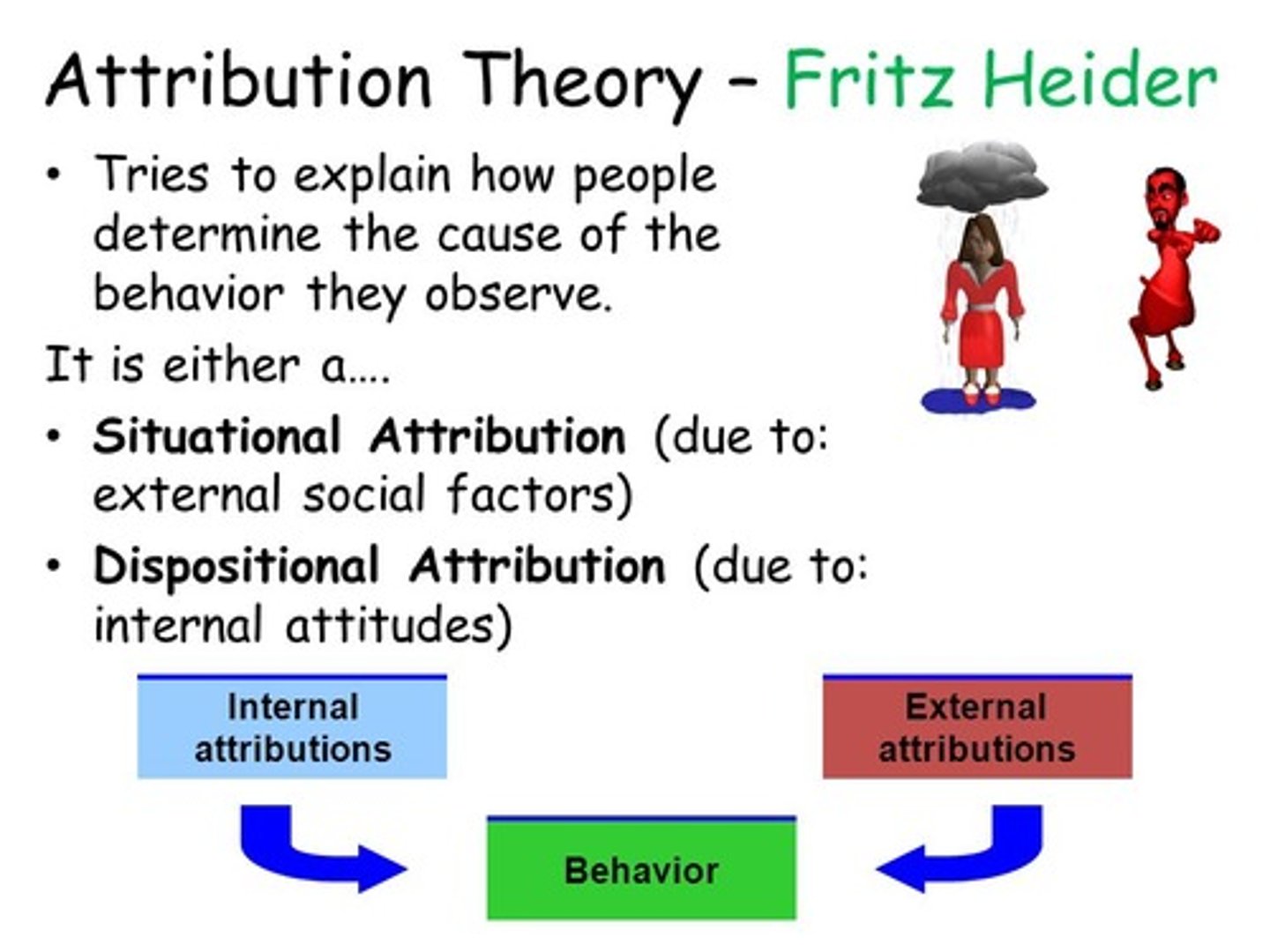
Dispositional Attribution
The tendency to explain someone's behavior by attributing it to their internal characteristics, like personality traits, beliefs, or abilities, rather than considering external situational factors as the primary cause of their actions; essentially, blaming someone's behavior on their inherent disposition.
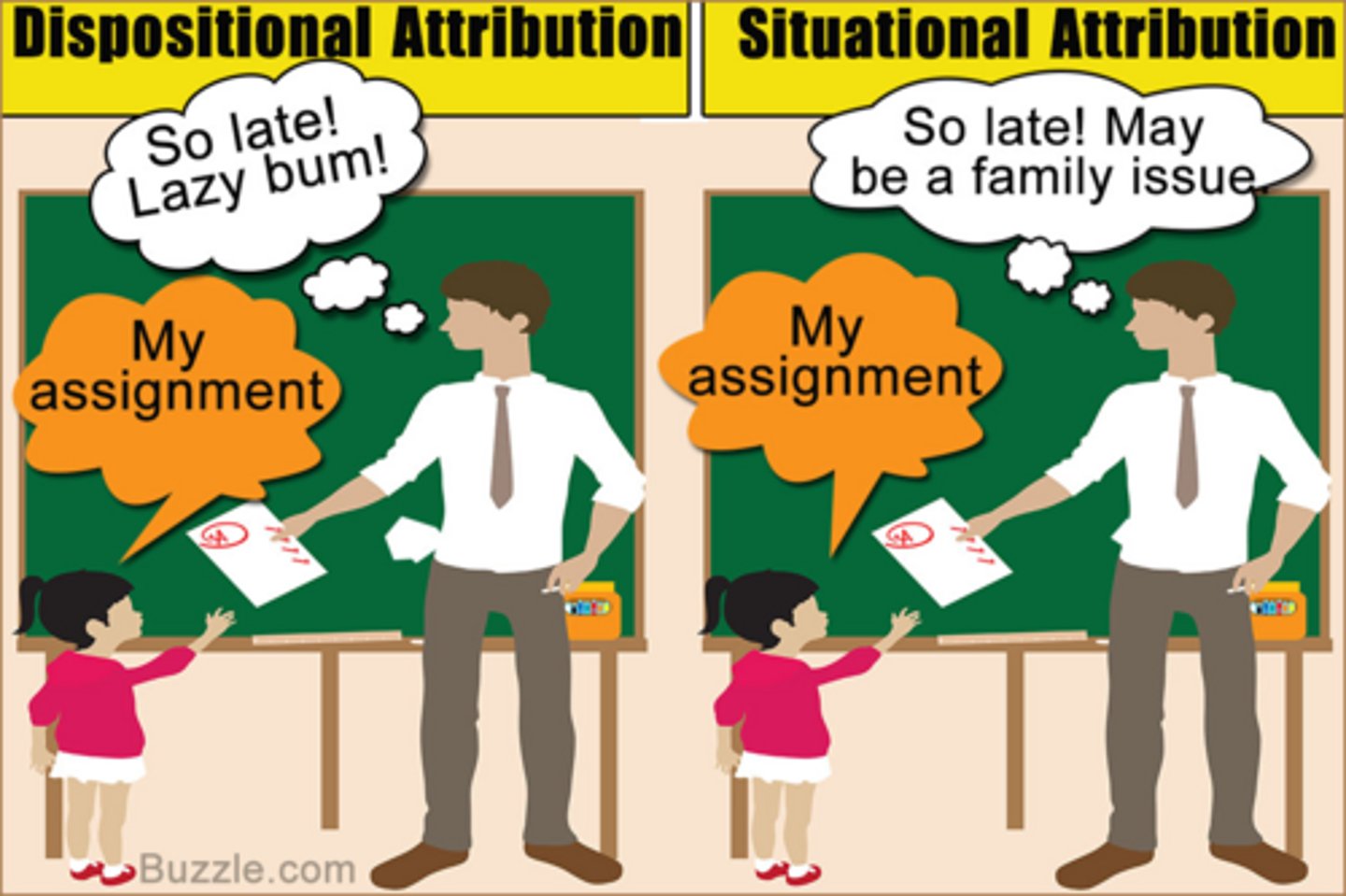
Situational Attribution
Explaining someone's behavior by attributing it to external factors or circumstances in the situation, rather than internal personality traits, essentially blaming the environment or context for their actions; it's considered an "external attribution.
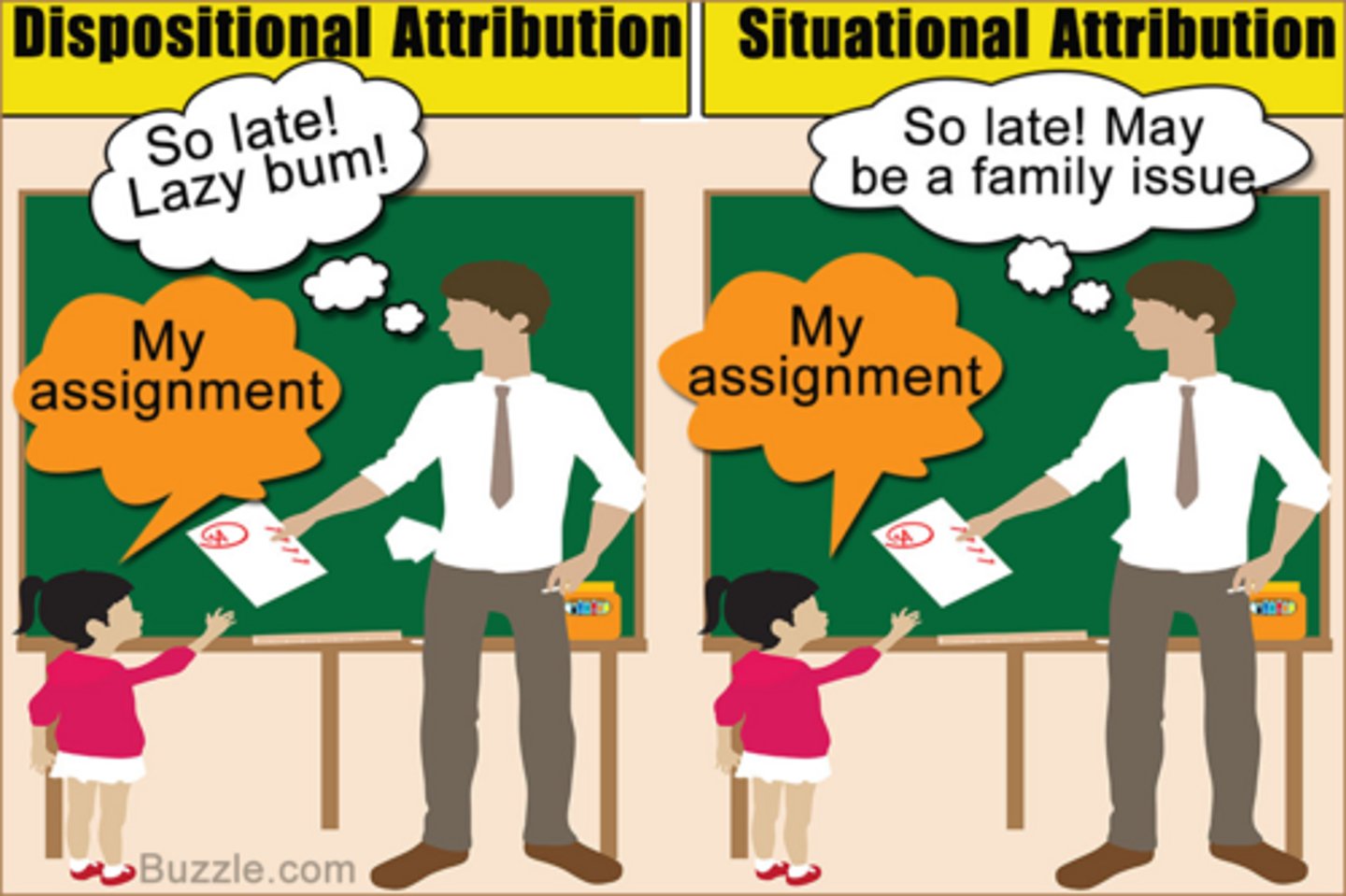
Explanatory Style
A person's habitual way of interpreting and explaining the causes of events in their life, particularly when faced with positive or negative situations, essentially describing how they attribute reasons for things that happen to them
Optimistic explanatory style
A tendency to interpret negative life events as temporary, specific, and external factors, meaning that someone with this style attributes setbacks to outside influences, believing they are not permanent or pervasive, and are therefore more likely to bounce back from challenges compared to someone with a pessimistic explanatory style.
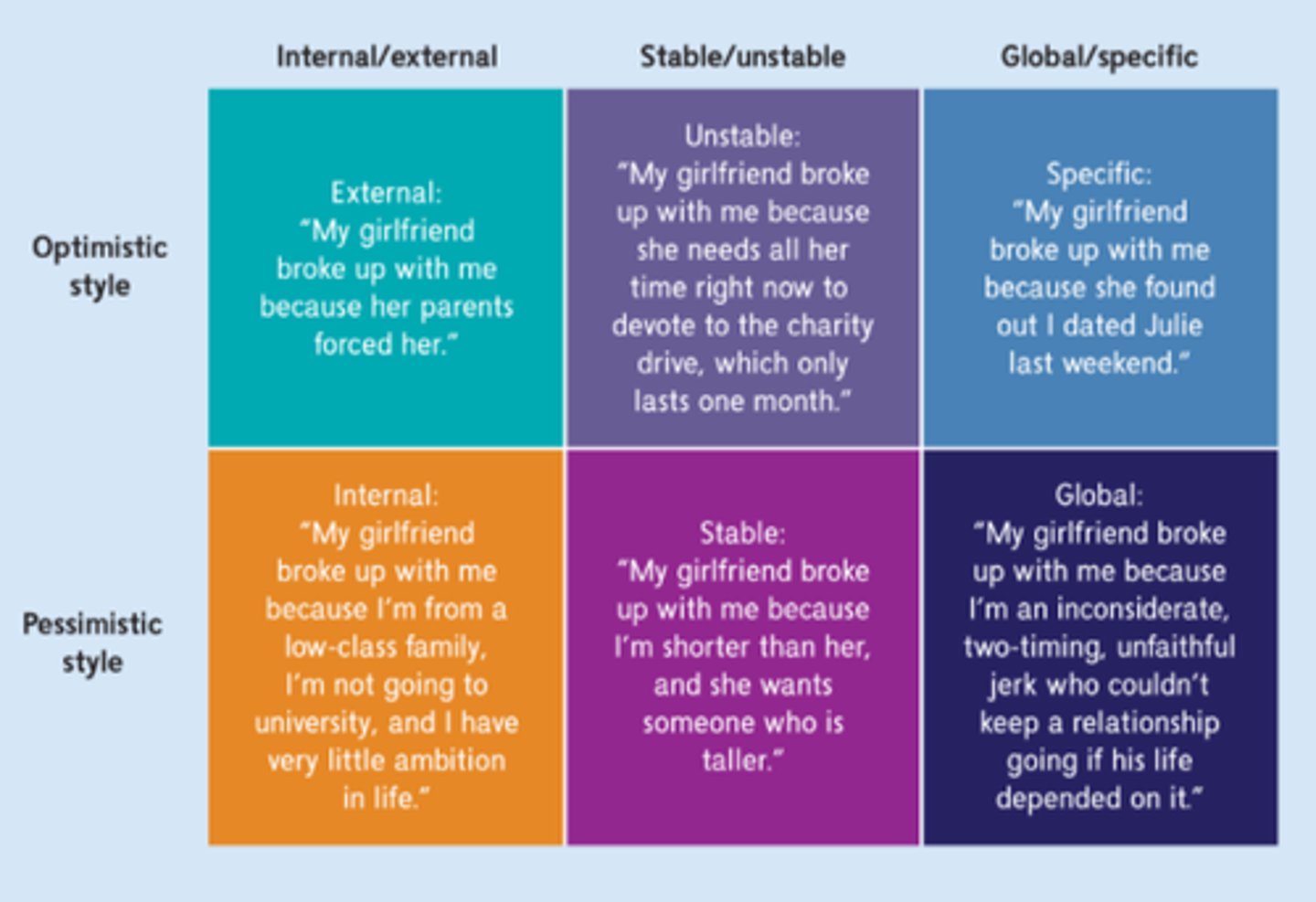
Pessimistic explanatory style
A tendency to interpret negative events as being personal, permanent, and pervasive, meaning that when faced with setbacks, a person with this style attributes the cause to internal factors, believes it will last a long time, and sees it as affecting many areas of their life, often leading to feelings of helplessness and hopelessness.
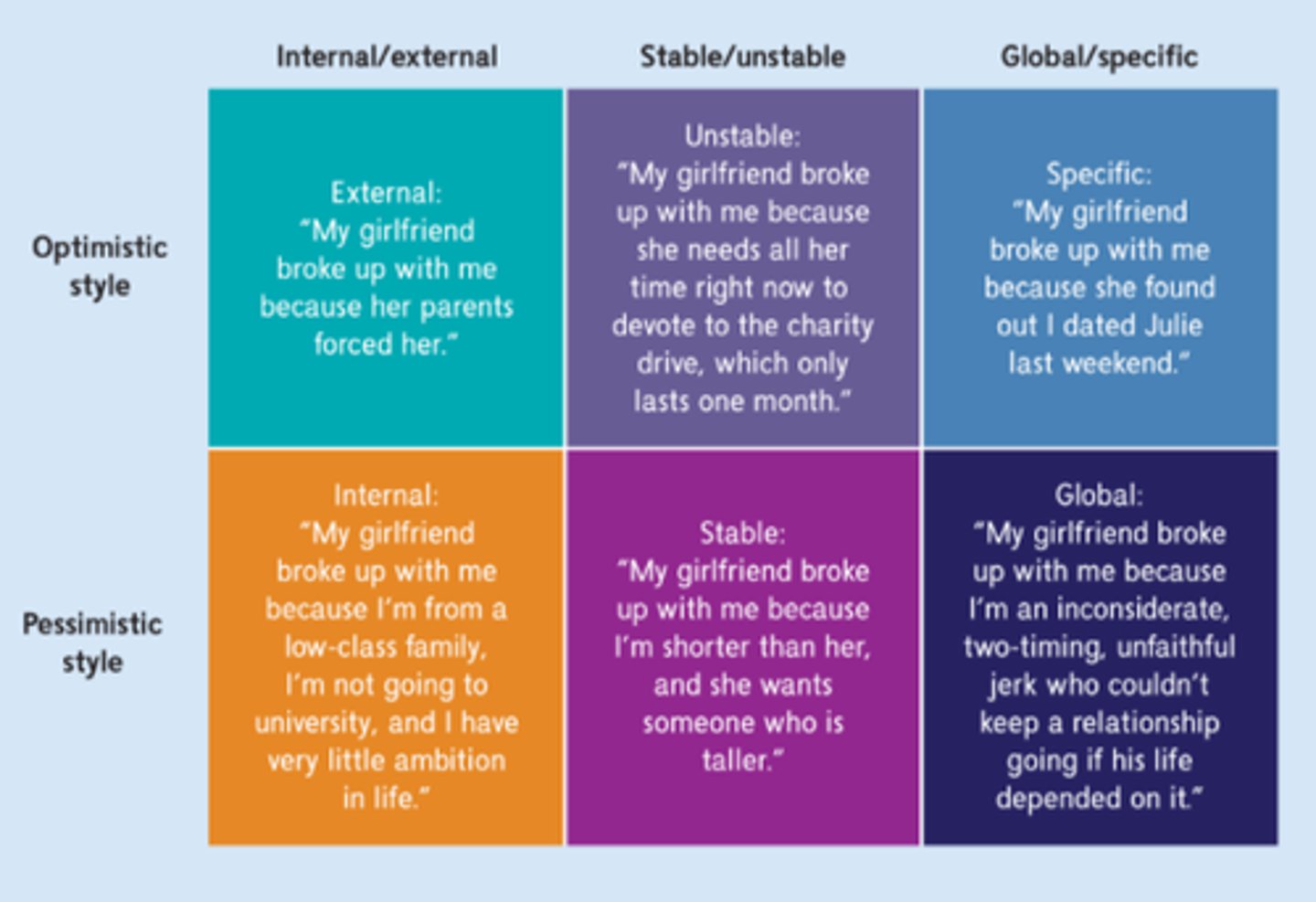
Actor/Observer Bias
The tendency for individuals to attribute their own behavior to external situational factors, while attributing the behavior of others to internal personality traits, essentially meaning people explain their actions differently than how they explain the same actions when observed in someone else
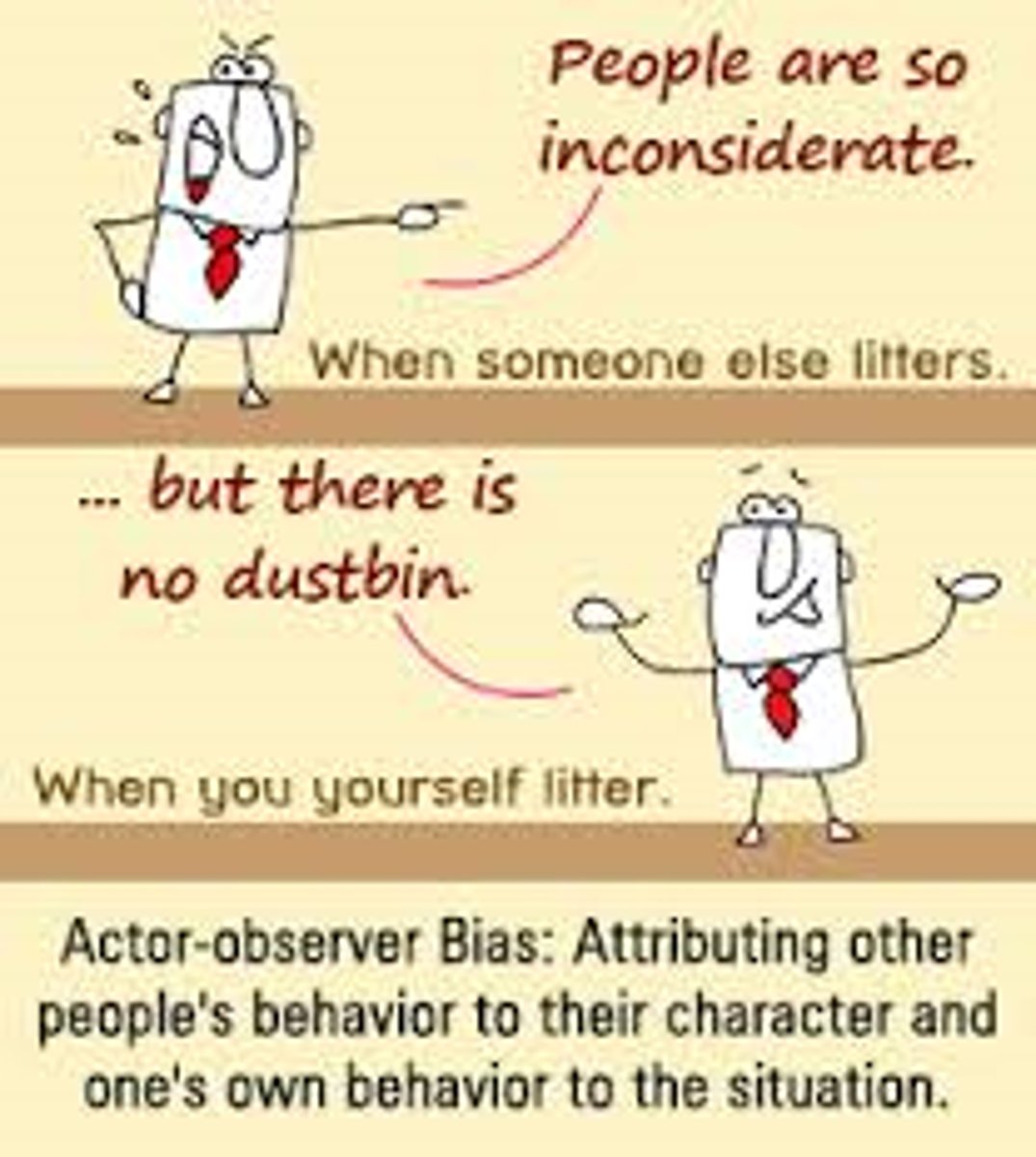
Fundamental Attribution Error
The tendency for people to overestimate the influence of personal characteristics (dispositional factors) and underestimate the impact of situational factors when explaining someone else's behavior, essentially blaming someone's actions on their personality rather than the situation they are in.

Self-Serving Bias
The tendency for individuals to attribute their successes to internal factors like their abilities or efforts, while blaming external factors like situations or others for their failures, essentially taking credit for positive outcomes and deflecting blame for negative ones, often to maintain a positive self-image.
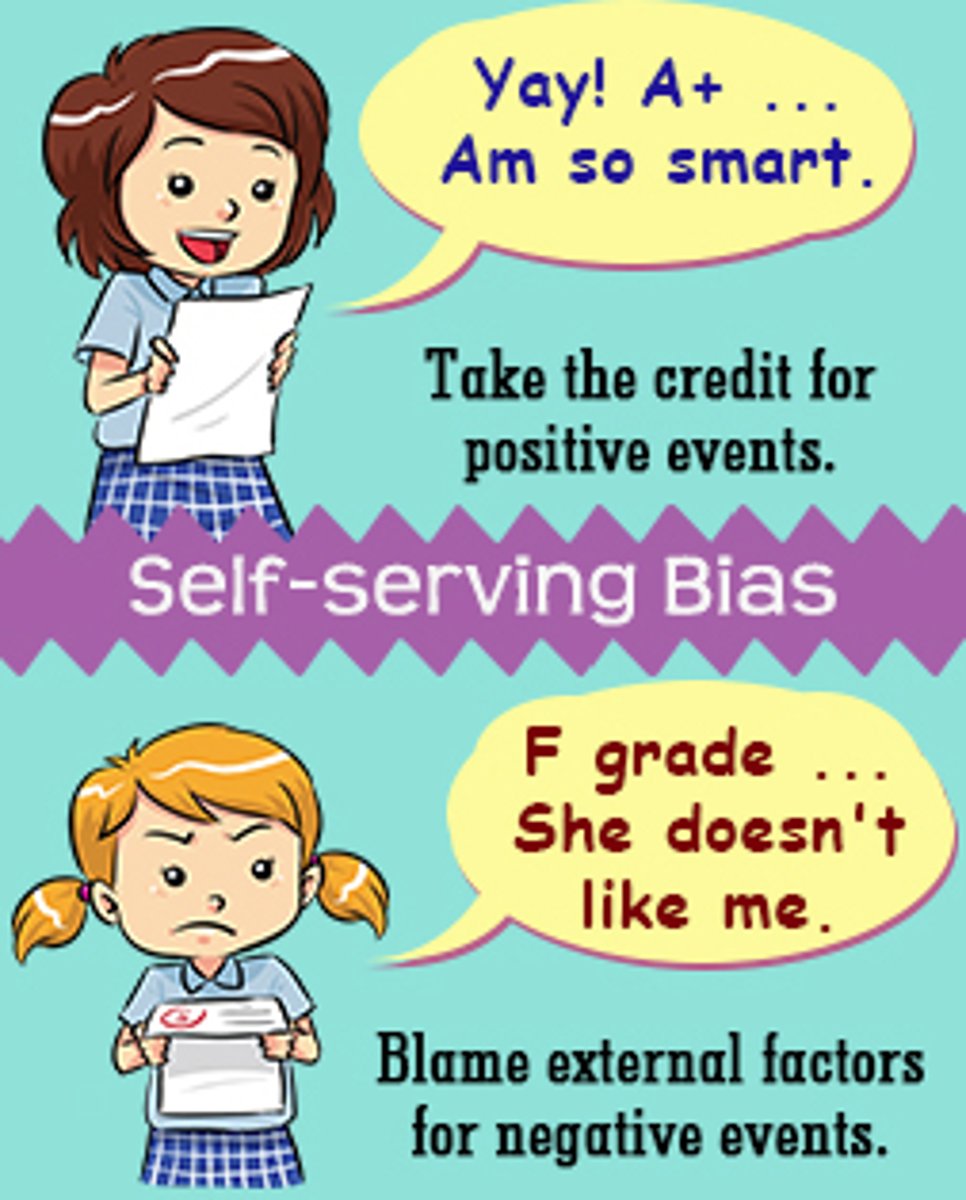
Internal Locus of Control
The belief that individuals have a significant degree of control over the events in their lives, meaning they attribute outcomes primarily to their own actions and efforts, rather than external forces like luck or fate
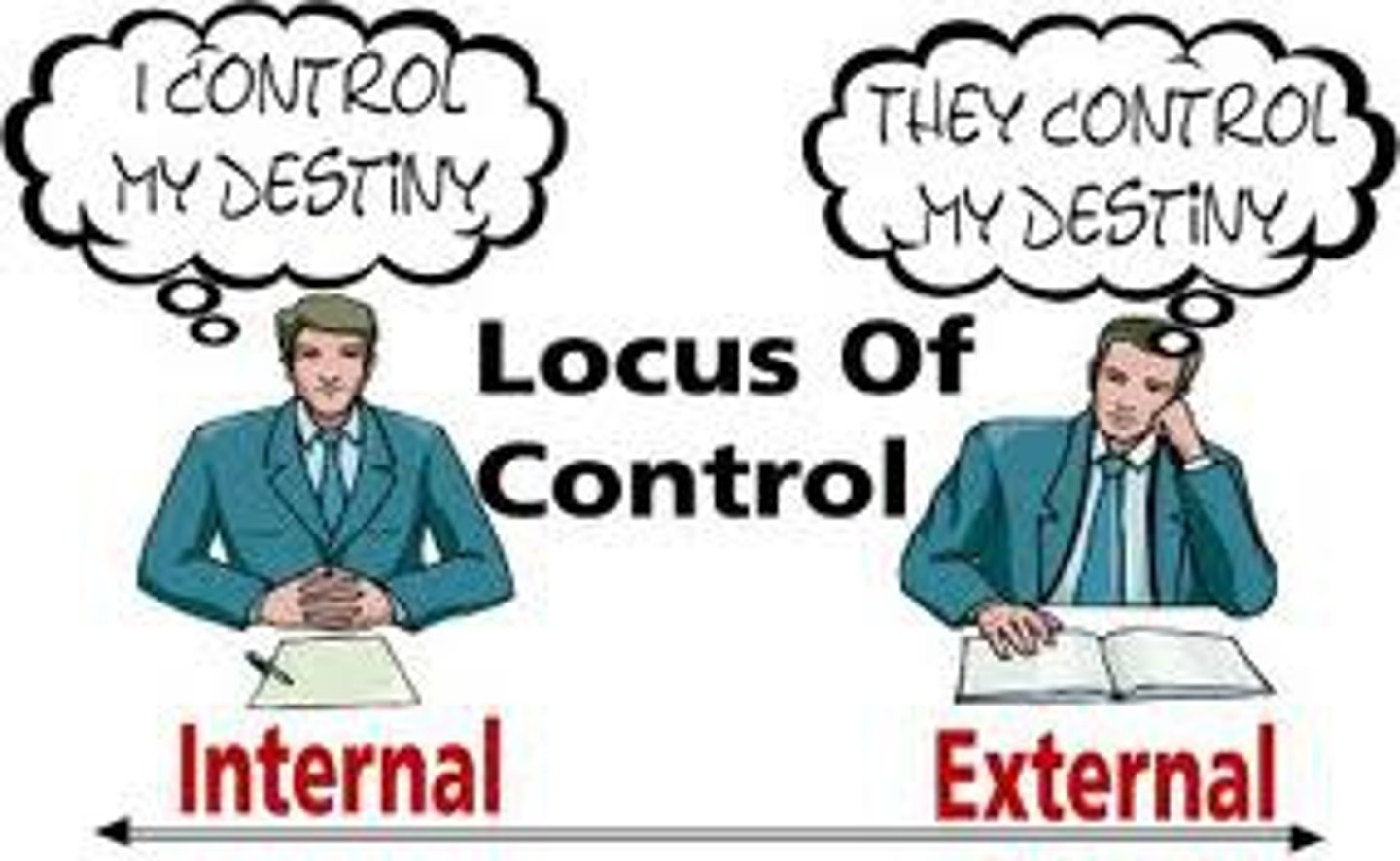
External Locus of Control
The belief that outside forces, like luck, fate, or other people, are primarily responsible for the outcomes in one's life, meaning individuals attribute their successes and failures to external factors rather than their own actions or abilities.
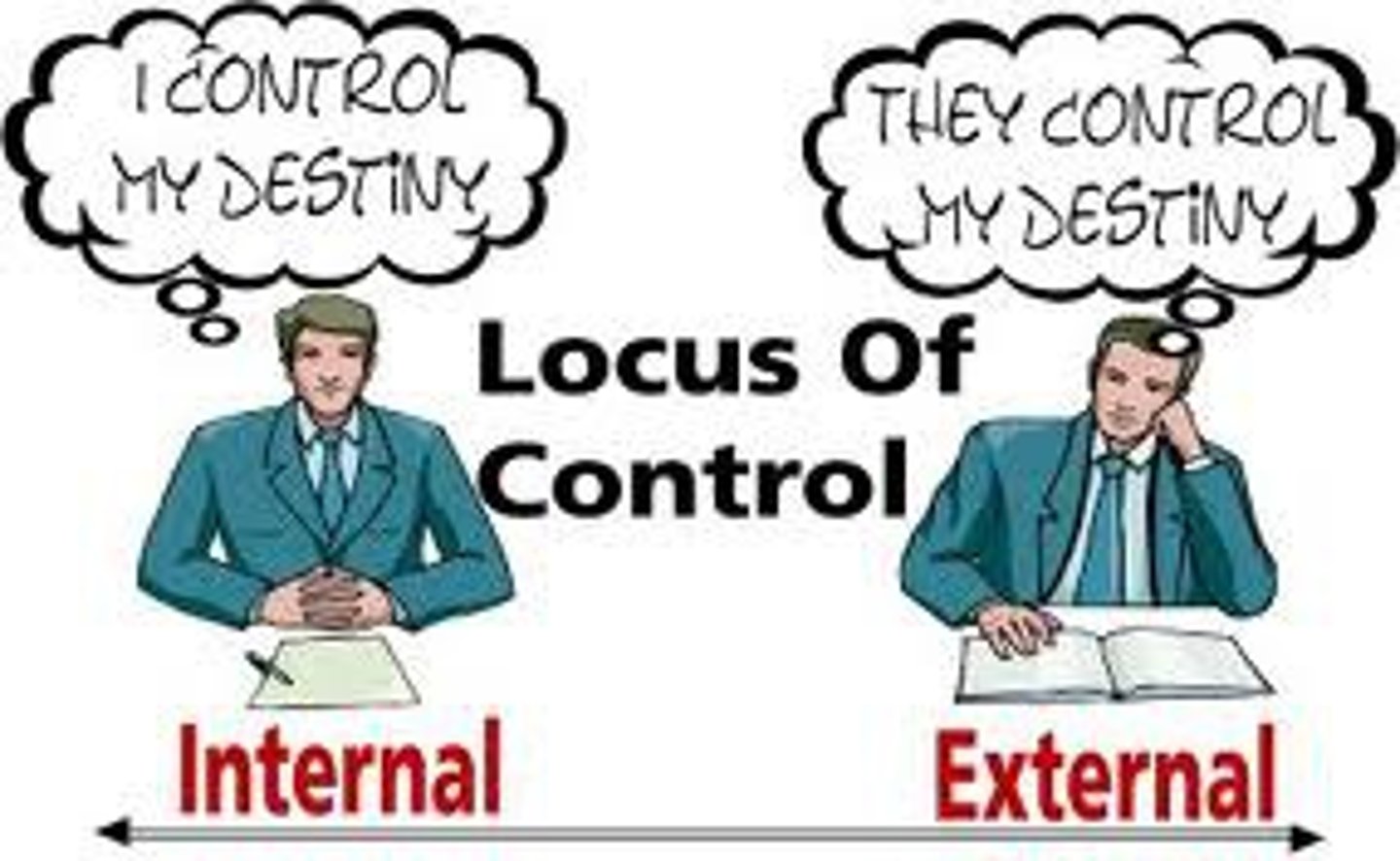
Mere Exposure Effect
The tendency for people to develop a preference for things simply because they are familiar with them, meaning the more often someone is exposed to a stimulus, the more likely they are to like it, even if they are not consciously aware of this process happening

Self-Fulfilling Prophecy
A belief or expectation about a future outcome that, due to the person's actions influenced by that belief, actually comes true, essentially causing the predicted behavior to manifest simply because the individual believes it will happen
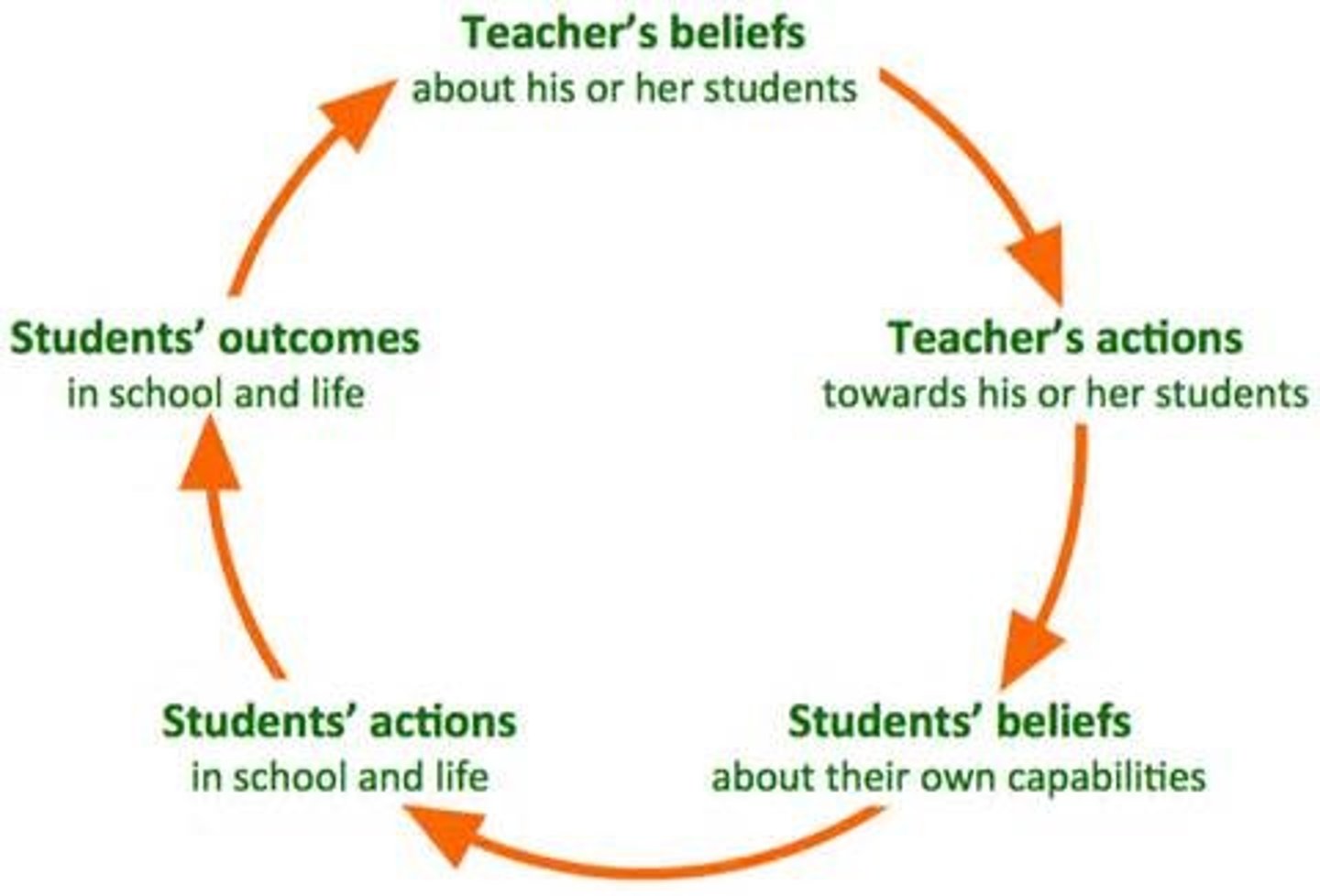
Social Comparison
The tendency for individuals to evaluate their own abilities, opinions, and beliefs by comparing themselves to others, often to gain a better understanding of their own standing relative to a group or social norm; this process can significantly influence self-esteem and self-perception.
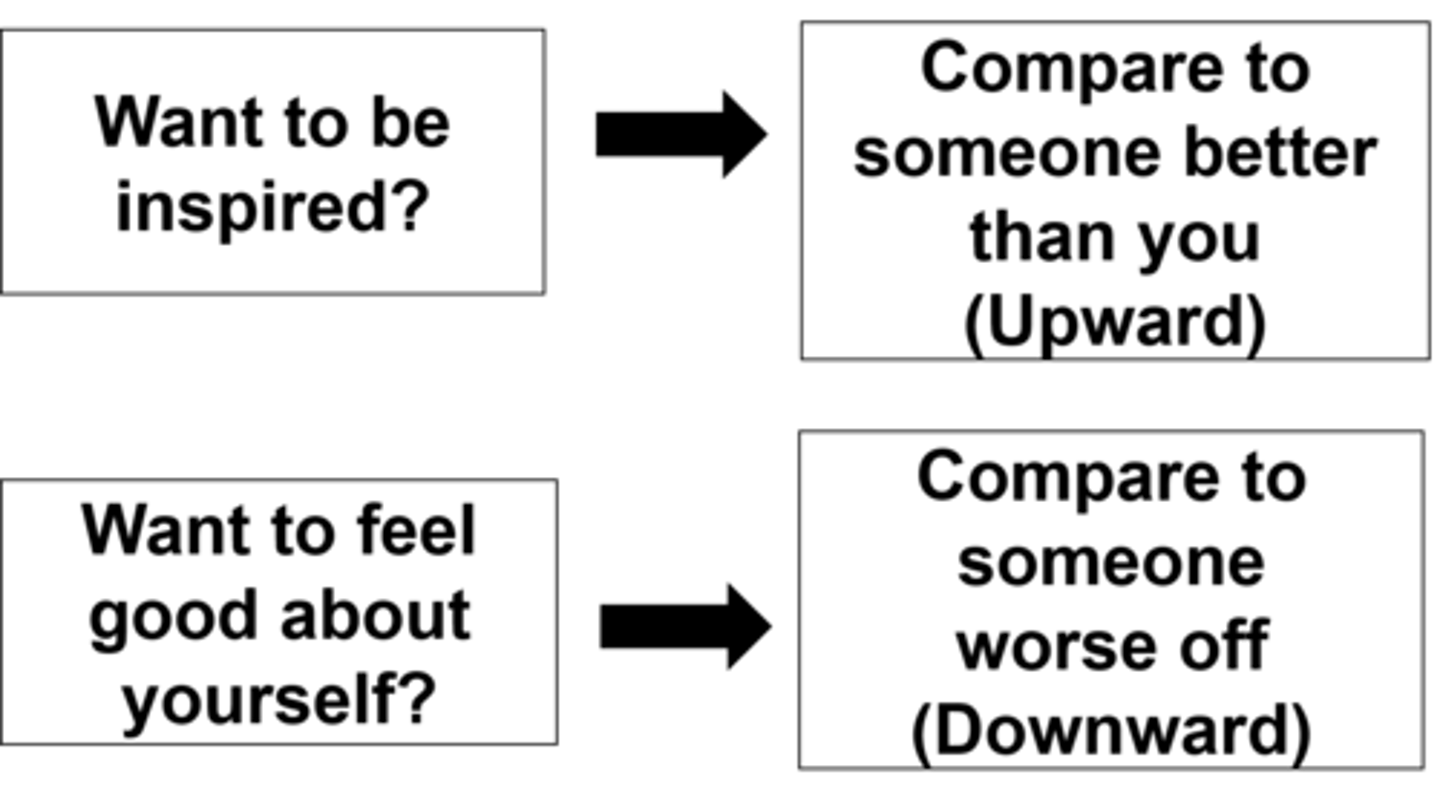
Relative Deprivation
The feeling of being worse off than others in a comparable group, based on a comparison of one's own situation to the perceived situation of those around them, often leading to feelings of discontent and resentment, even if one's absolute situation is not objectively deprived; essentially, it's the perception of being deprived compared to others, even if one has a decent standard of living.
Stereotype
A generalized and often oversimplified belief about a particular group of people, usually based on characteristics like race, gender, or ethnicity, which can be positive, negative, or neutral, and is often inaccurate and resistant to new information

Prejudice
A negative attitude towards a group of people, formed without any real experience with them, usually based on stereotypes and often leading to discriminatory behavior
Discrimination
The act of behaving negatively towards an individual based on their membership in a particular group
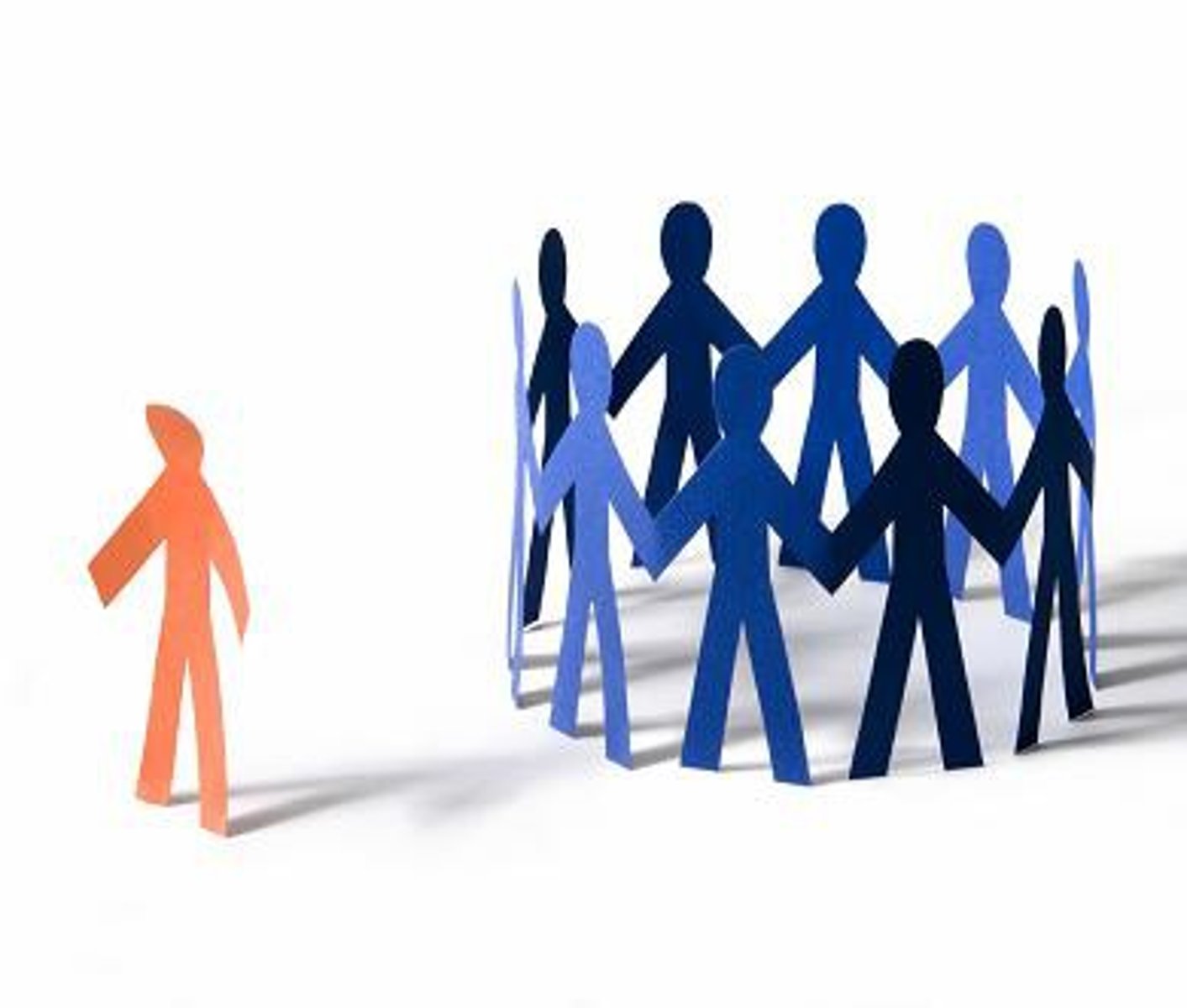
Implicit Attitude
An unconscious, automatic evaluation or feeling towards a person, object, or concept, which a person is not fully aware of and cannot readily report, often stemming from past experiences and influencing behavior without conscious control
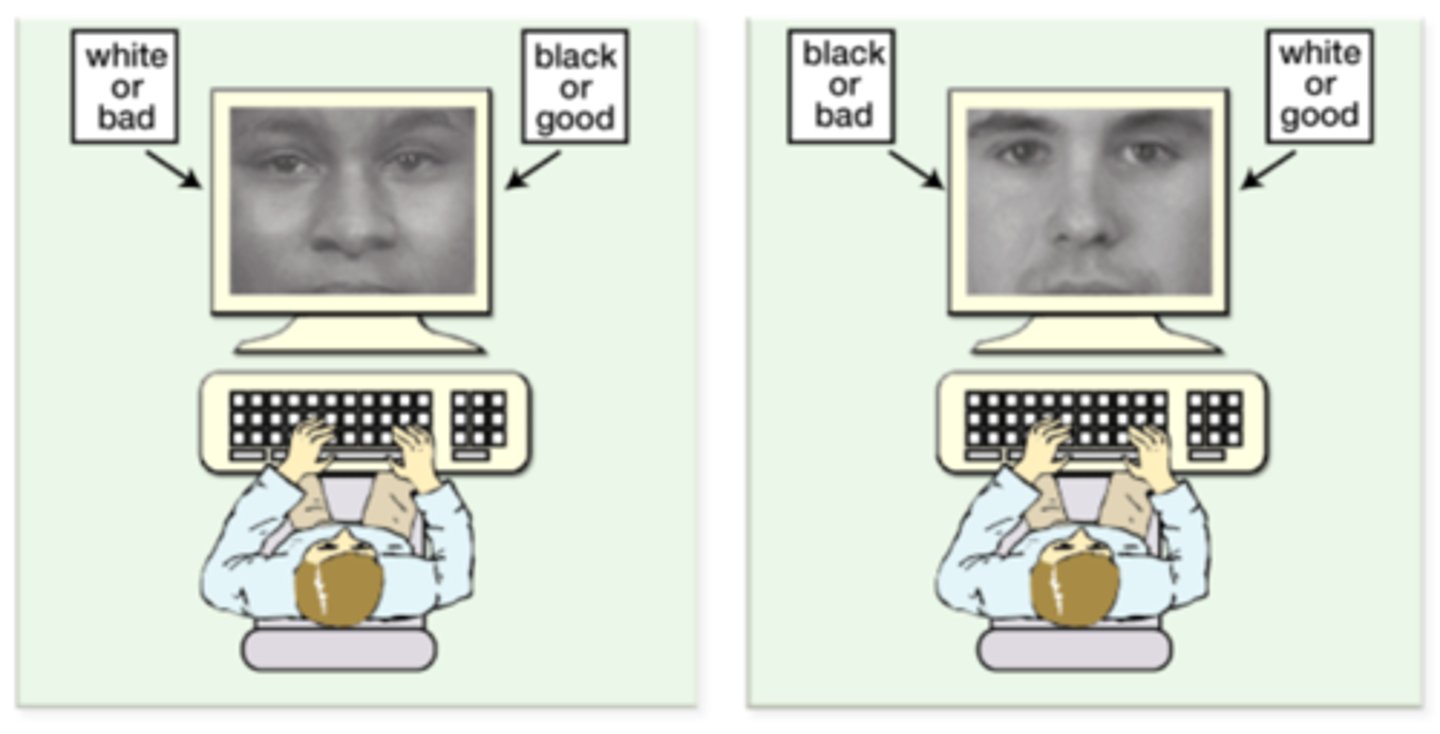
Just-World Phenomenon
The tendency for people to believe that the world is fundamentally fair and that people generally get what they deserve, often leading individuals to blame victims of misfortune by assuming they must have done something to deserve their situation; essentially, it's the belief that "good things happen to good people and bad things happen to bad people.

Out-Group Homogeneity Bias
The tendency for people to perceive members of a group they do not belong to (the out-group) as being more similar to each other than members of their own group (the in-group), essentially seeing the out-group as a homogenous mass with similar characteristics, while viewing their own group as more diverse.
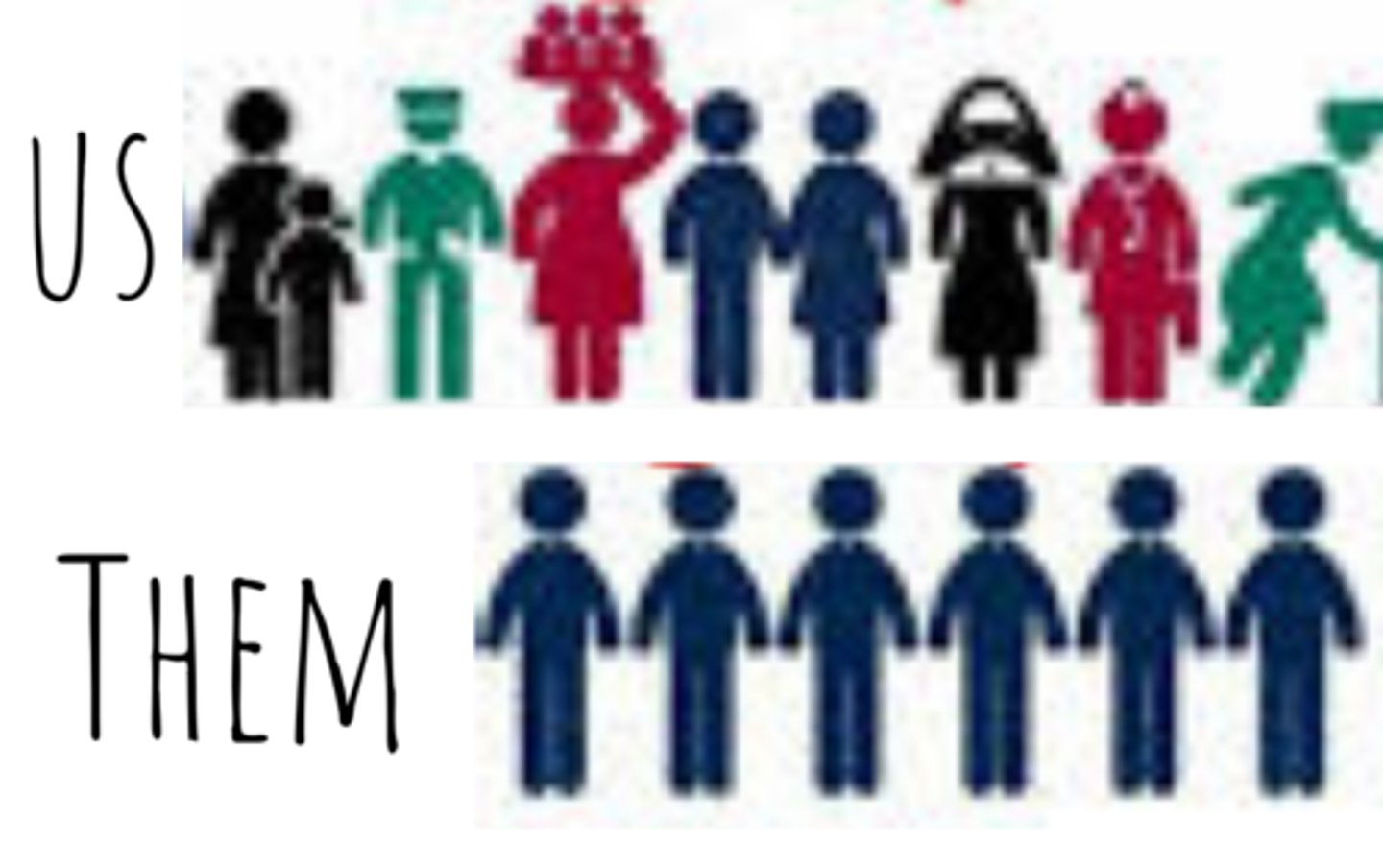
In-Group Bias
The tendency for individuals to favor and show preferential treatment towards members of their own social group (the "in-group") compared to individuals belonging to a different group (the "out-group"), often leading to positive evaluations and resource allocation towards in-group members, even when the group distinction is arbitrary

Ethnocentrism
The tendency to judge other cultures based on the standards of one's own culture, often believing that one's own culture is superior and leading to negative judgments about other cultures and practices; essentially, viewing the world primarily through the lens of one's own cultural perspective.
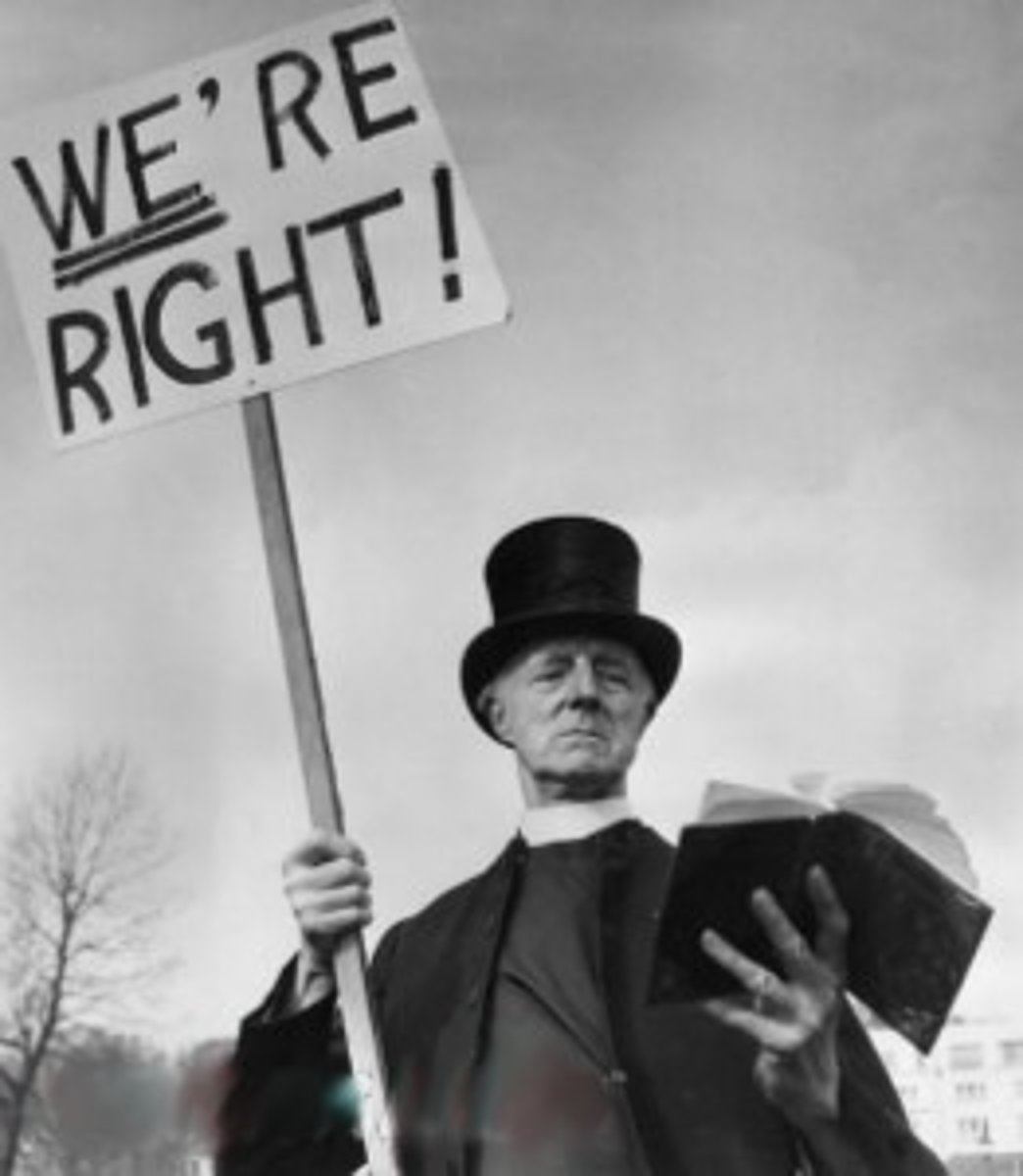
Belief Perseverance
The tendency for individuals to continue holding onto a belief even when presented with evidence that directly contradicts it; essentially, maintaining a belief despite new information proving it false
Confirmation Bias
The tendency for individuals to actively seek out information that supports their existing beliefs while ignoring or dismissing information that contradicts them, essentially reinforcing their pre-existing opinions by selectively interpreting evidence in their favor.
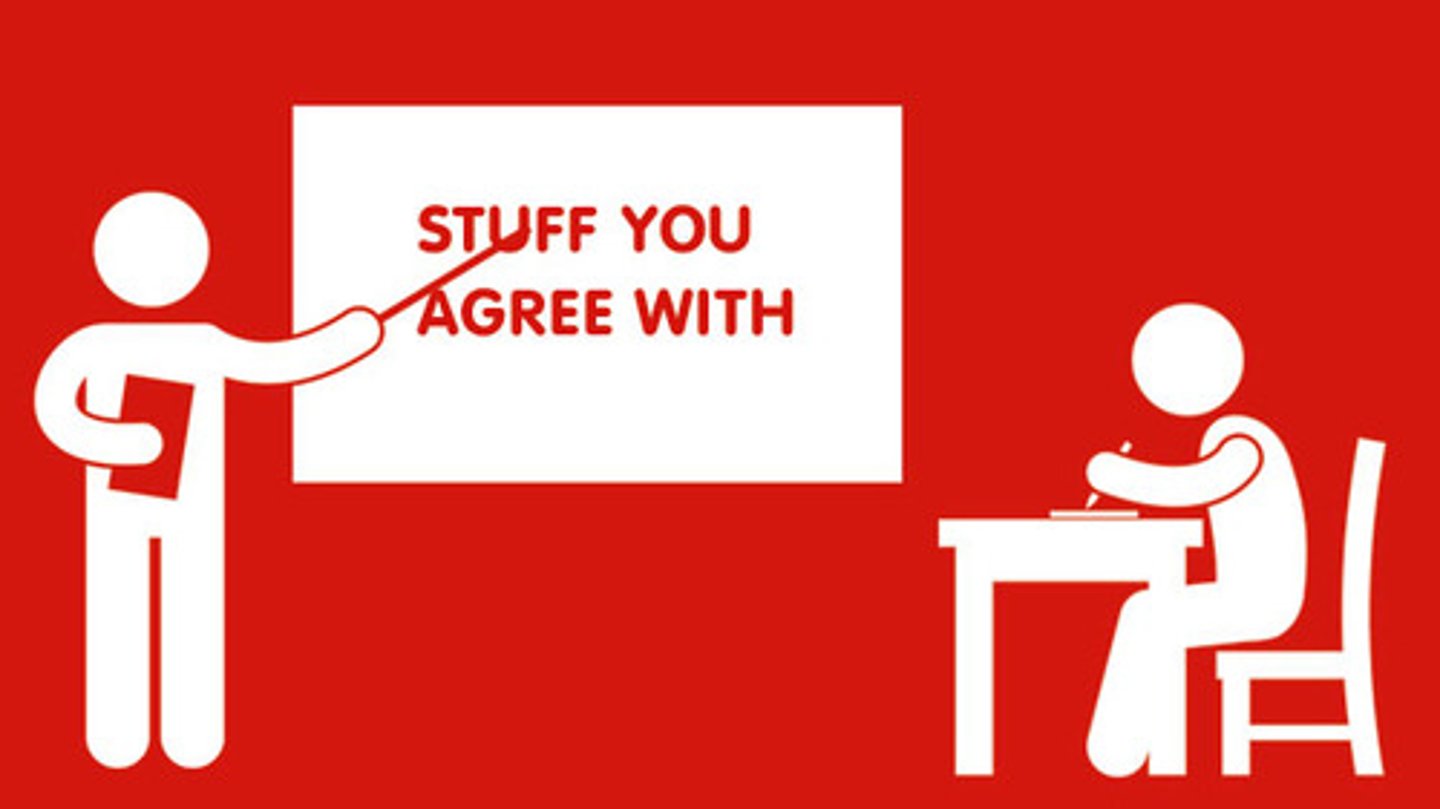
Cognitive Dissonance
The mental discomfort or tension a person experiences when their beliefs, attitudes, or values clash with their actions, leading them to try and change their thoughts or behaviors to achieve consistency and reduce that discomfort; essentially, it's the feeling of unease when your actions contradict your internal beliefs.
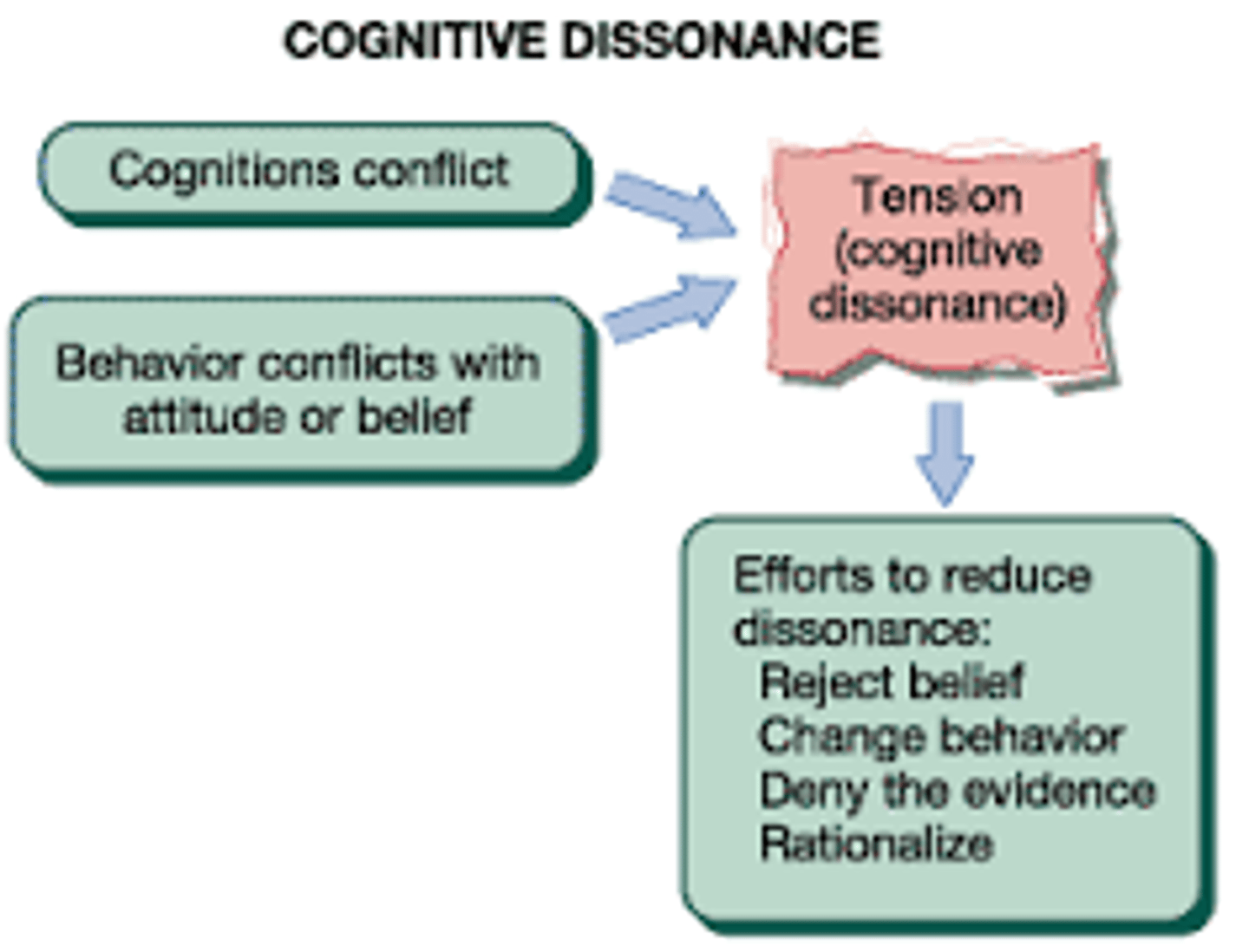
Conformity
The act of changing one's behavior, beliefs, or opinions to align with the norms or expectations of a group, essentially adjusting oneself to fit in with the majority around them; it's the tendency to modify personal actions to match those of the group they are with or want to be accepted by.

Obedience
A form of social influence where a person complies with direct orders or instructions given by a perceived authority figure, often performing actions they might not otherwise do if not directed by someone in a position of power
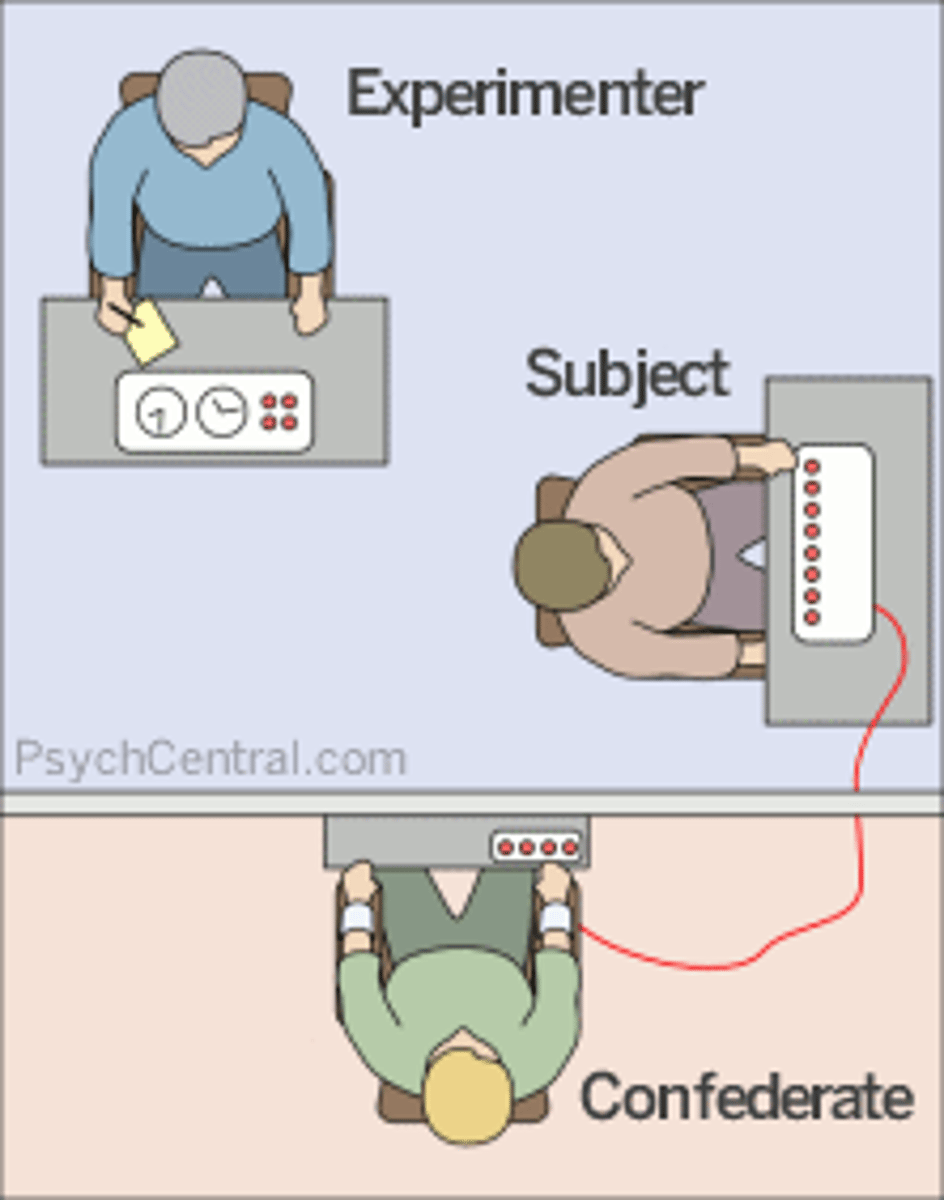
Altruism
A prosocial behavior where someone acts to benefit another person, even if it means incurring a personal cost to themselves, essentially meaning they are helping others without expecting anything in return, motivated by genuine concern for the other person's well-being; it is considered a selfless act.
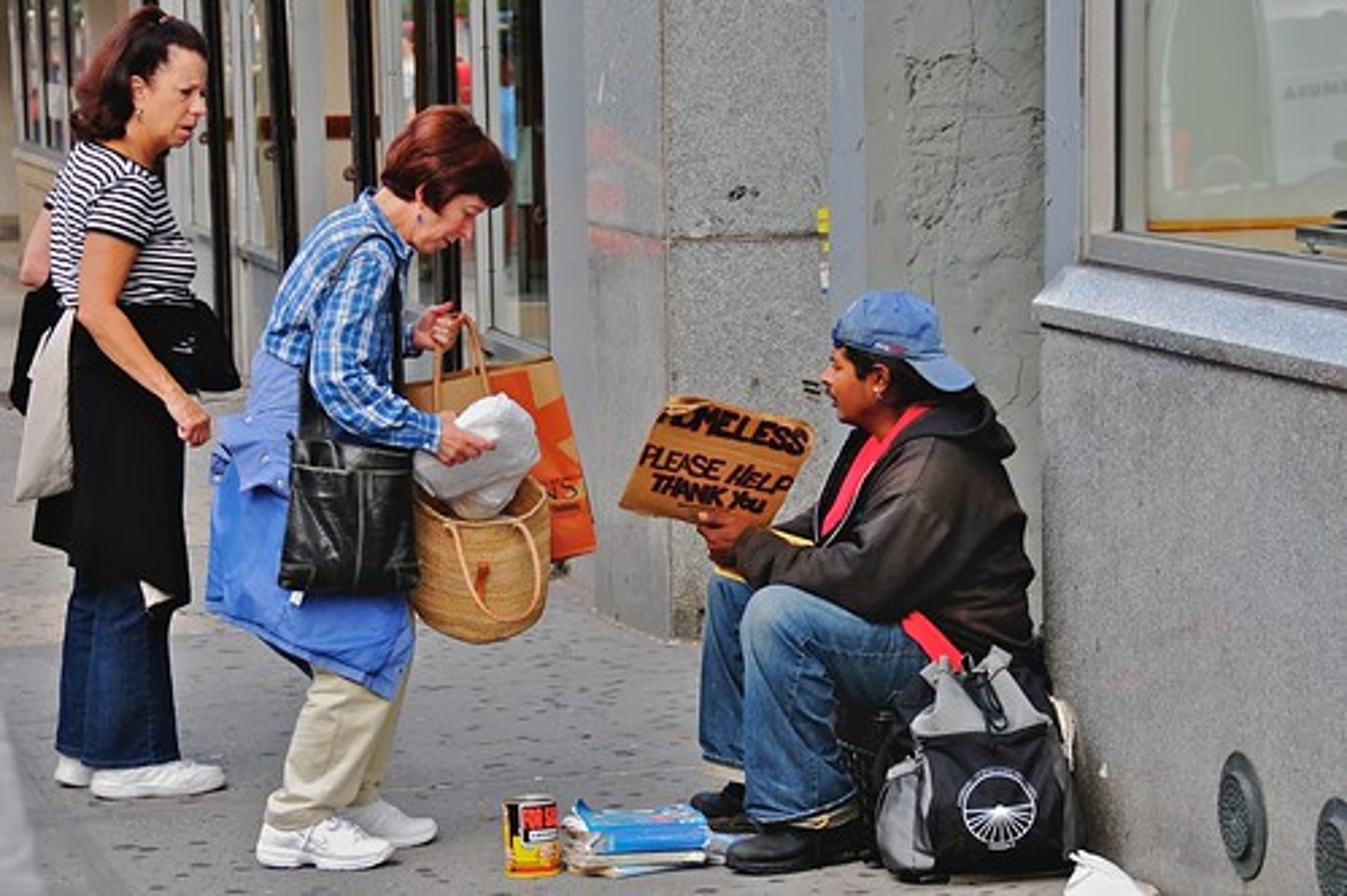
Prosocial behavior
Any action taken by an individual that intentionally benefits others or society as a whole

Social Reciprocity Norm
A social rule that states people should return favors or acts of kindness received from others, essentially meaning that if someone does something nice for you, you feel obligated to do something nice for them in return; it's a principle of "give and take" in social interactions.
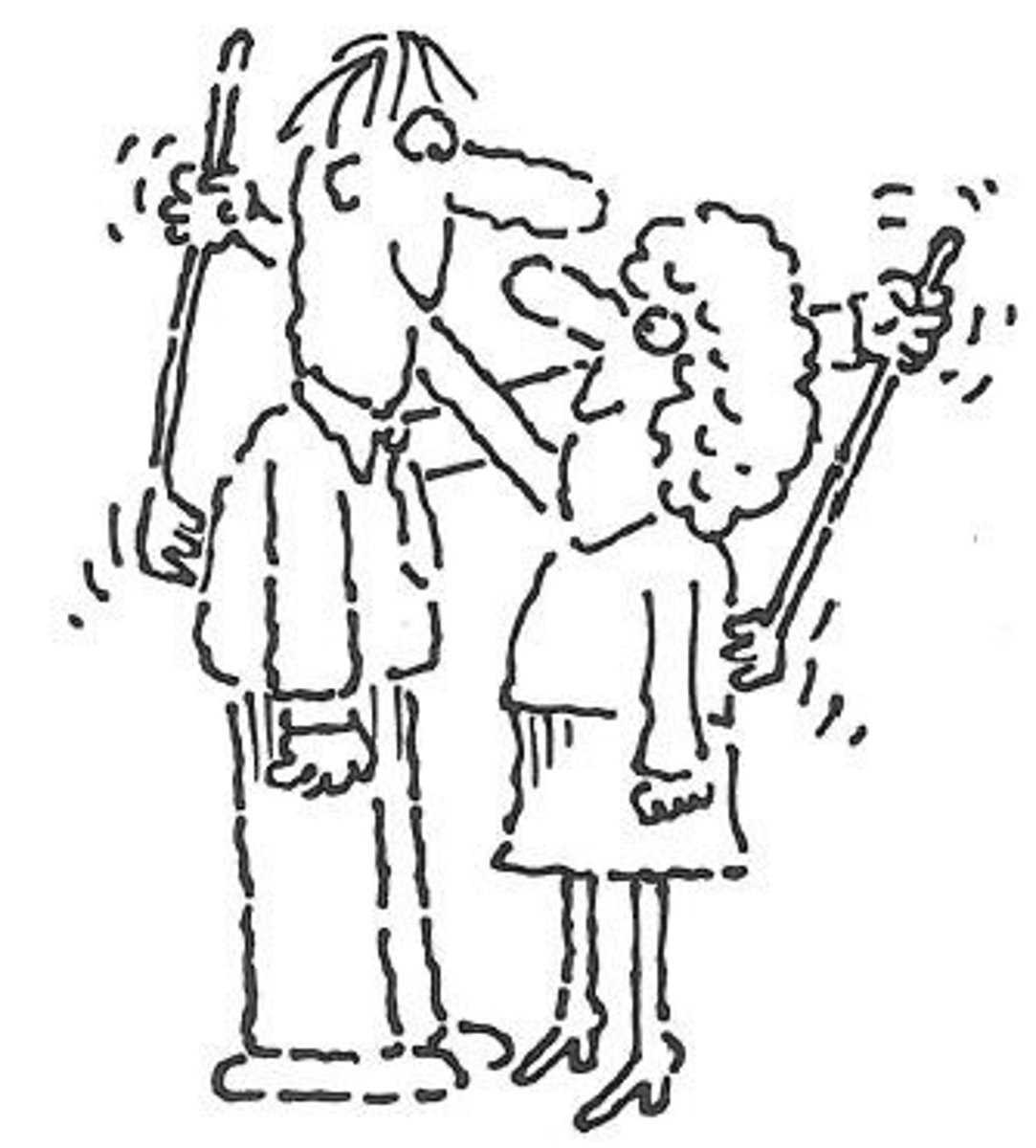
Social Responsibility Norm
The societal expectation that people should help others in need, even without expecting personal gain or reciprocation, essentially feeling a sense of duty to contribute to the welfare of their community.

Bystander Effect
The phenomenon where individuals are less likely to intervene in an emergency situation when other people are present, as the presence of others creates a diffusion of responsibility, making each person feel less personally obligated to help
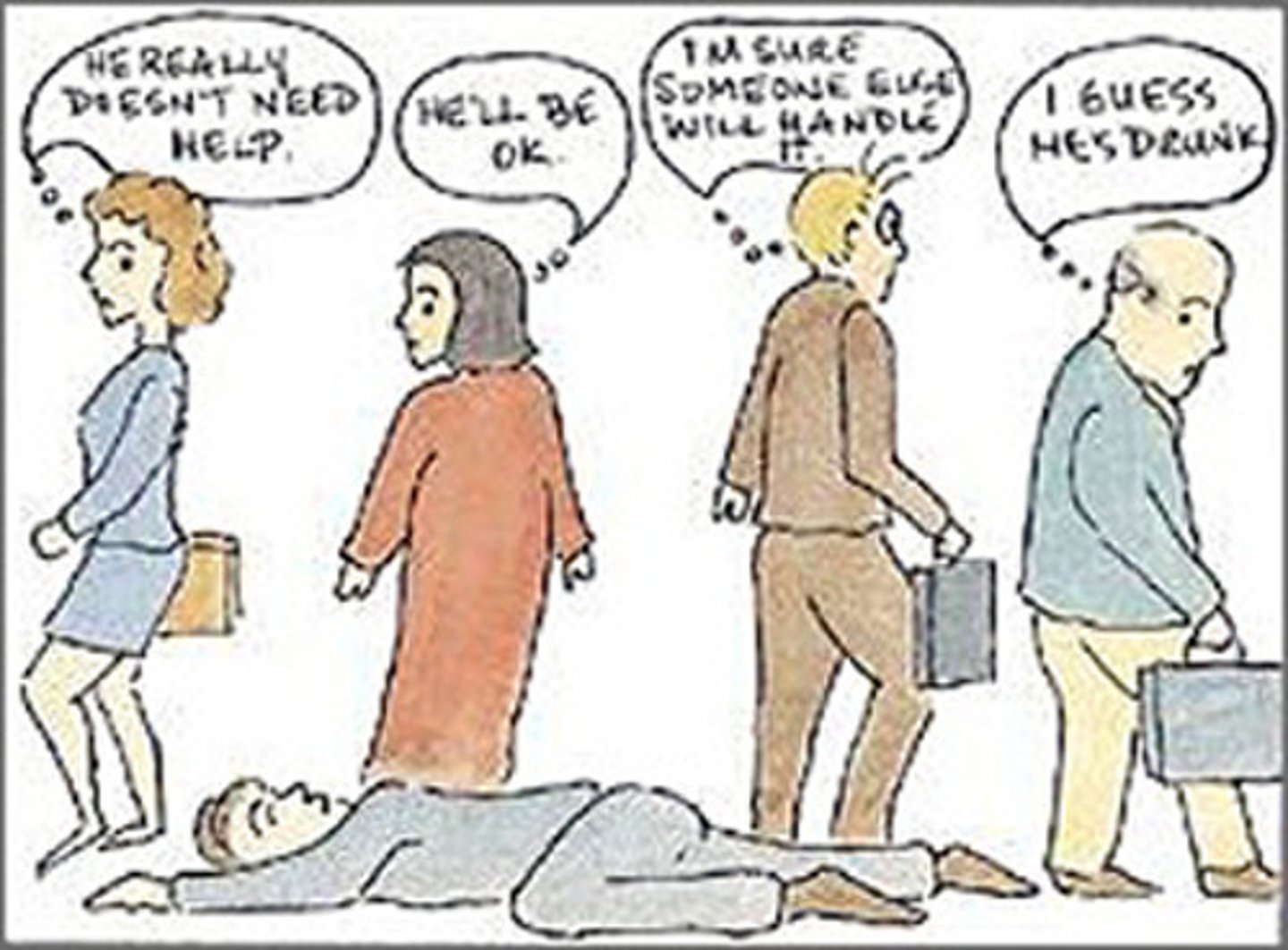
Personality
The unique combination of thoughts, feelings, traits, and behaviors that characterize a person and remain relatively consistent across different situations and over time

Social-Cognitive Theory
A psychological perspective that suggests people learn behaviors primarily through observing others within their social environment, where their thoughts, behaviors, and environment interact with each other in a dynamic process called "reciprocal determinism".
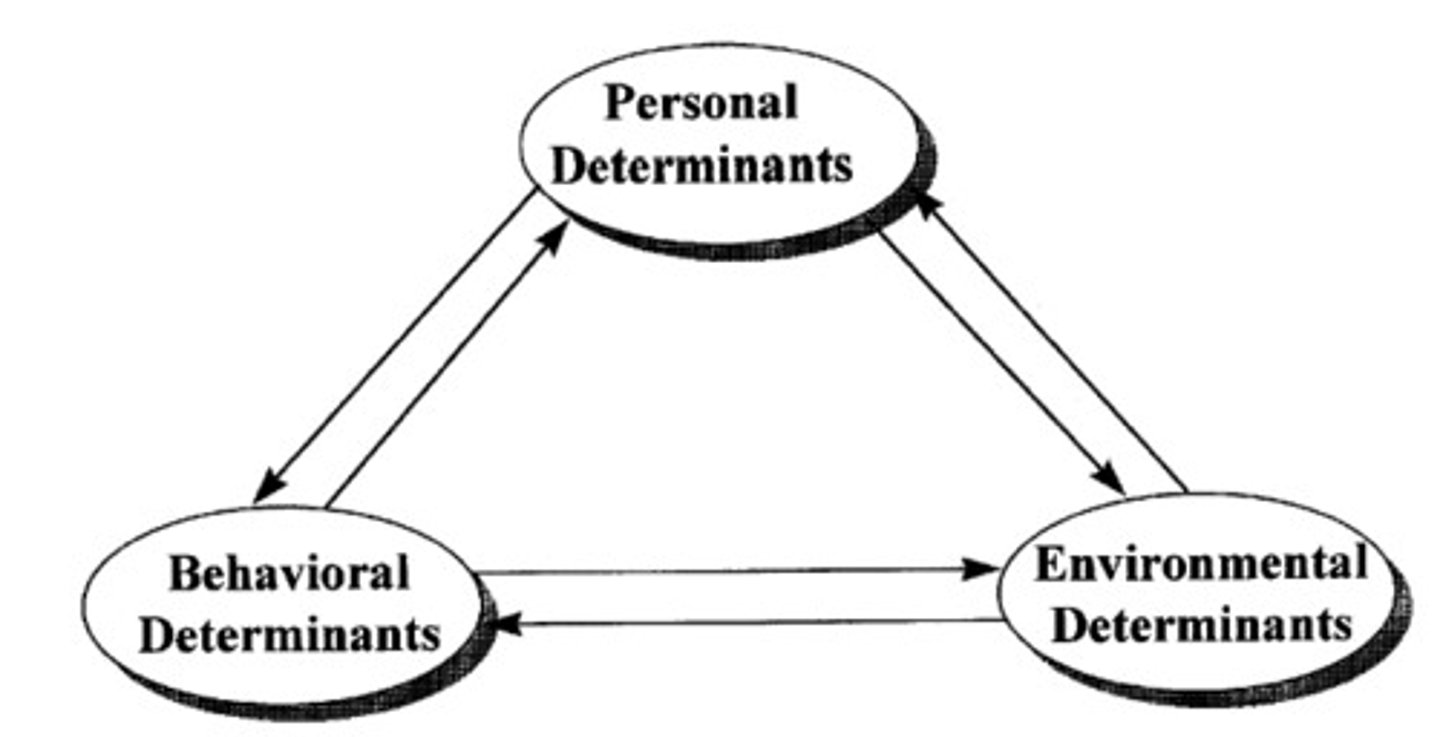
Reciprocal Determinism
A concept developed by Albert Bandura, which states that a person's behavior is influenced by, and simultaneously influences, both their personal characteristics and their environment, creating a dynamic interaction between the three factors: behavior, environment, and individual cognition.
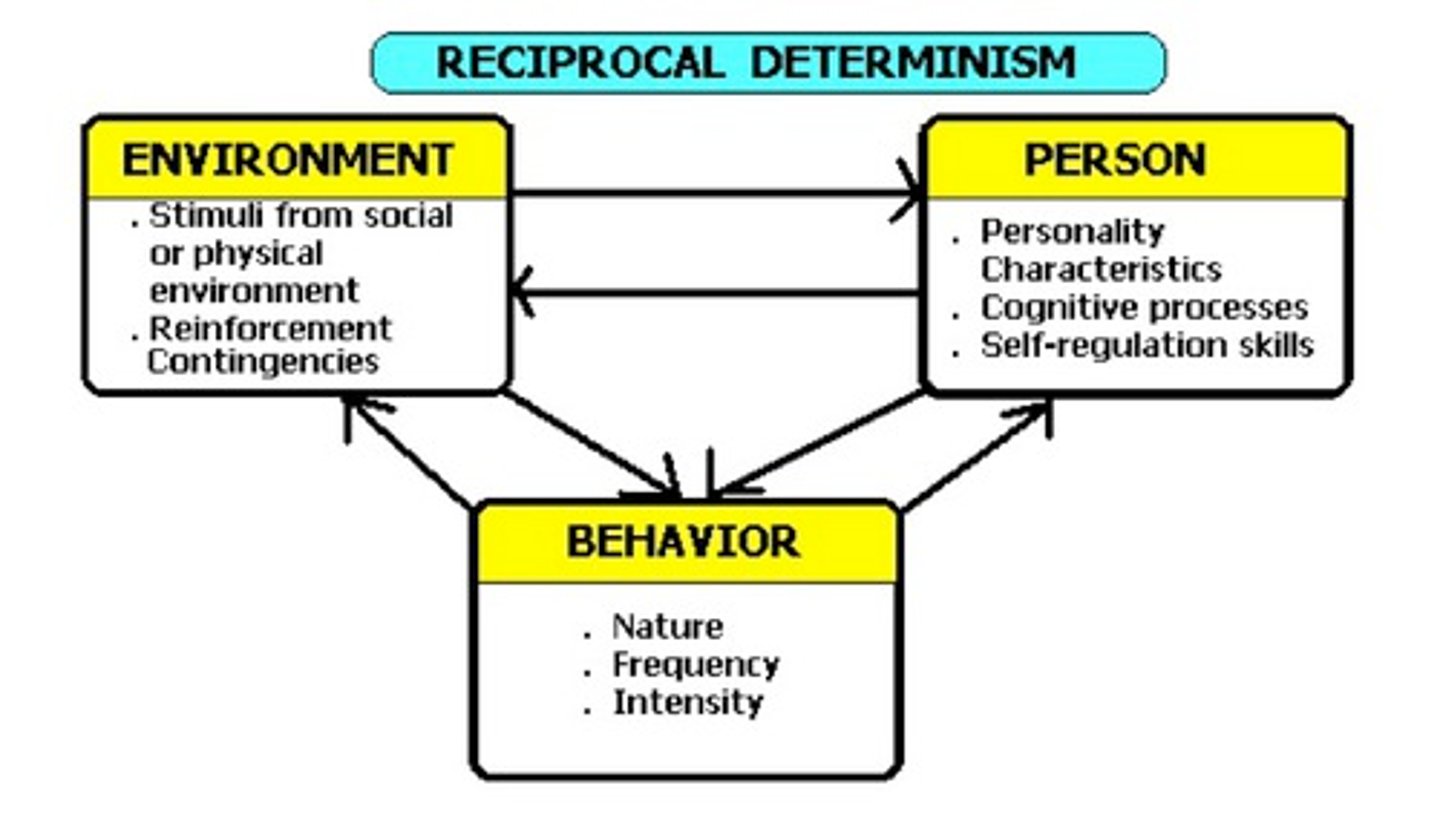
Trait Theories of Personality
A psychological approach that explains personality by identifying and measuring stable, enduring characteristics (traits) that individuals possess, which are thought to influence their behaviors across different situations, essentially describing a person's personality as a combination of various trait strengths and weaknesses; this perspective focuses on describing personality rather than explaining its development.
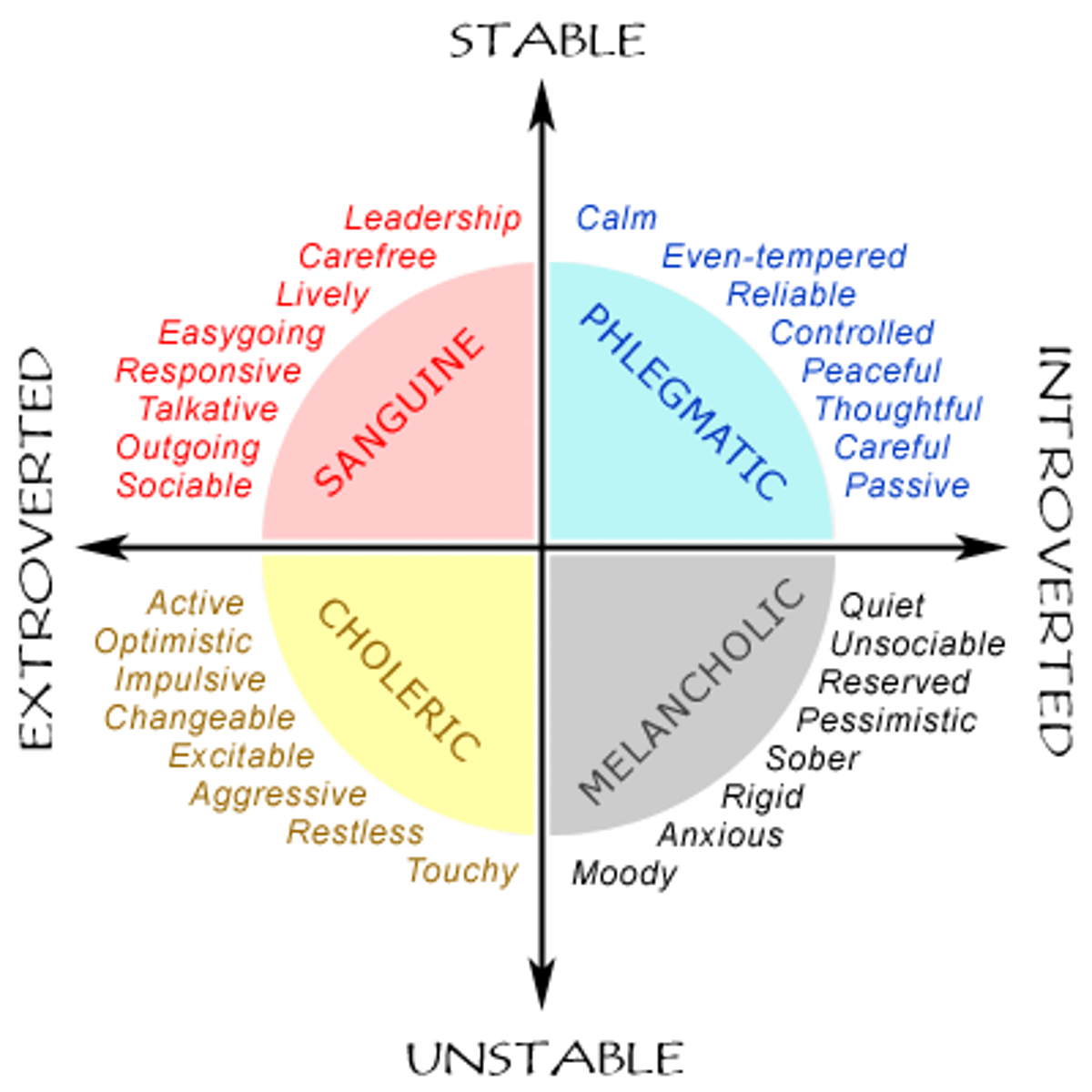
Big Five Trait Theory
A personality theory that suggests five primary traits - Openness, Conscientiousness, Extraversion, Agreeableness, and Neuroticism
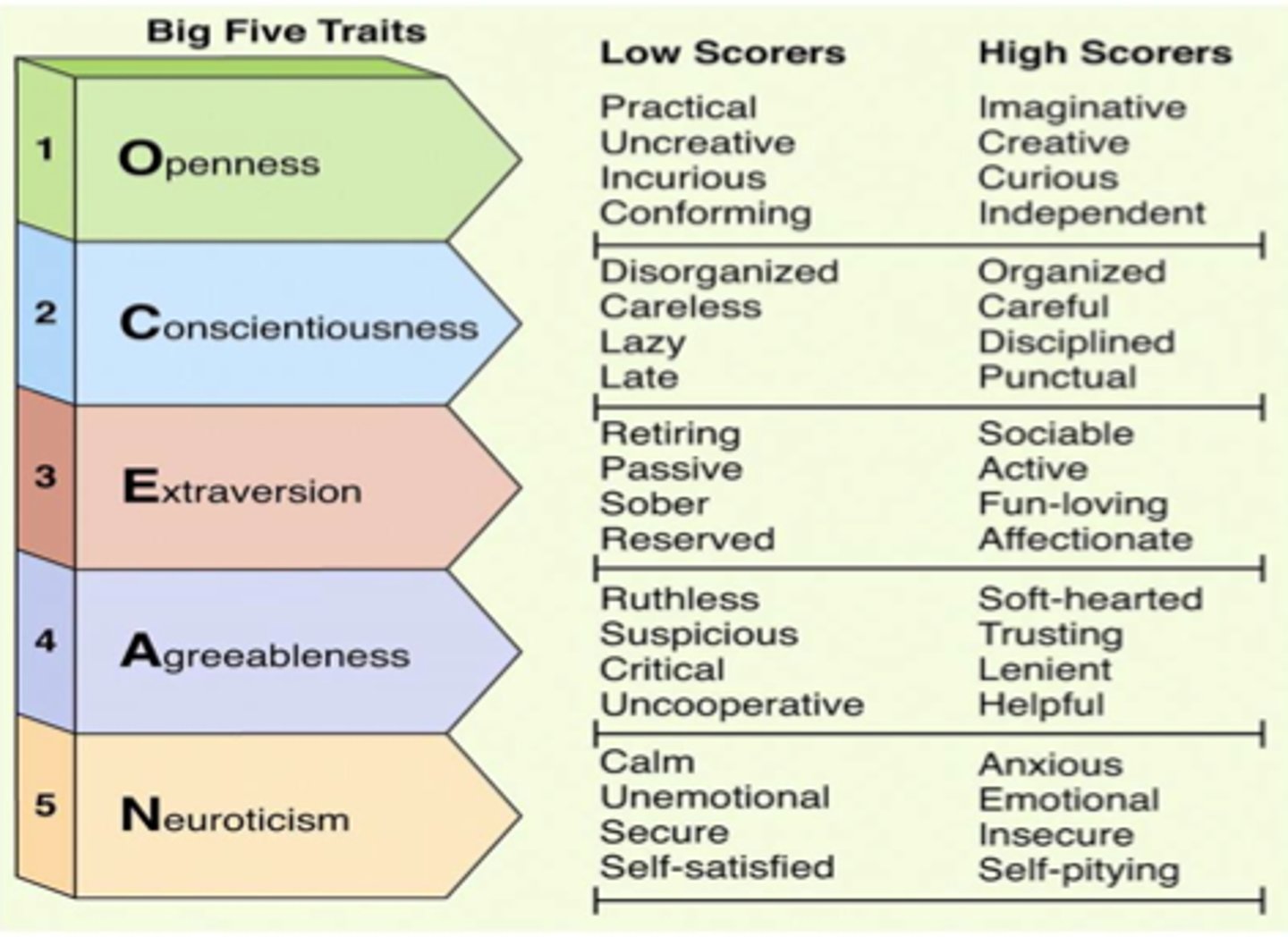
Agreeableness
A personality trait that describes a person's tendency to be kind, cooperative, empathetic, trusting, and considerate of others, essentially reflecting how well they prioritize social harmony and getting along with others.
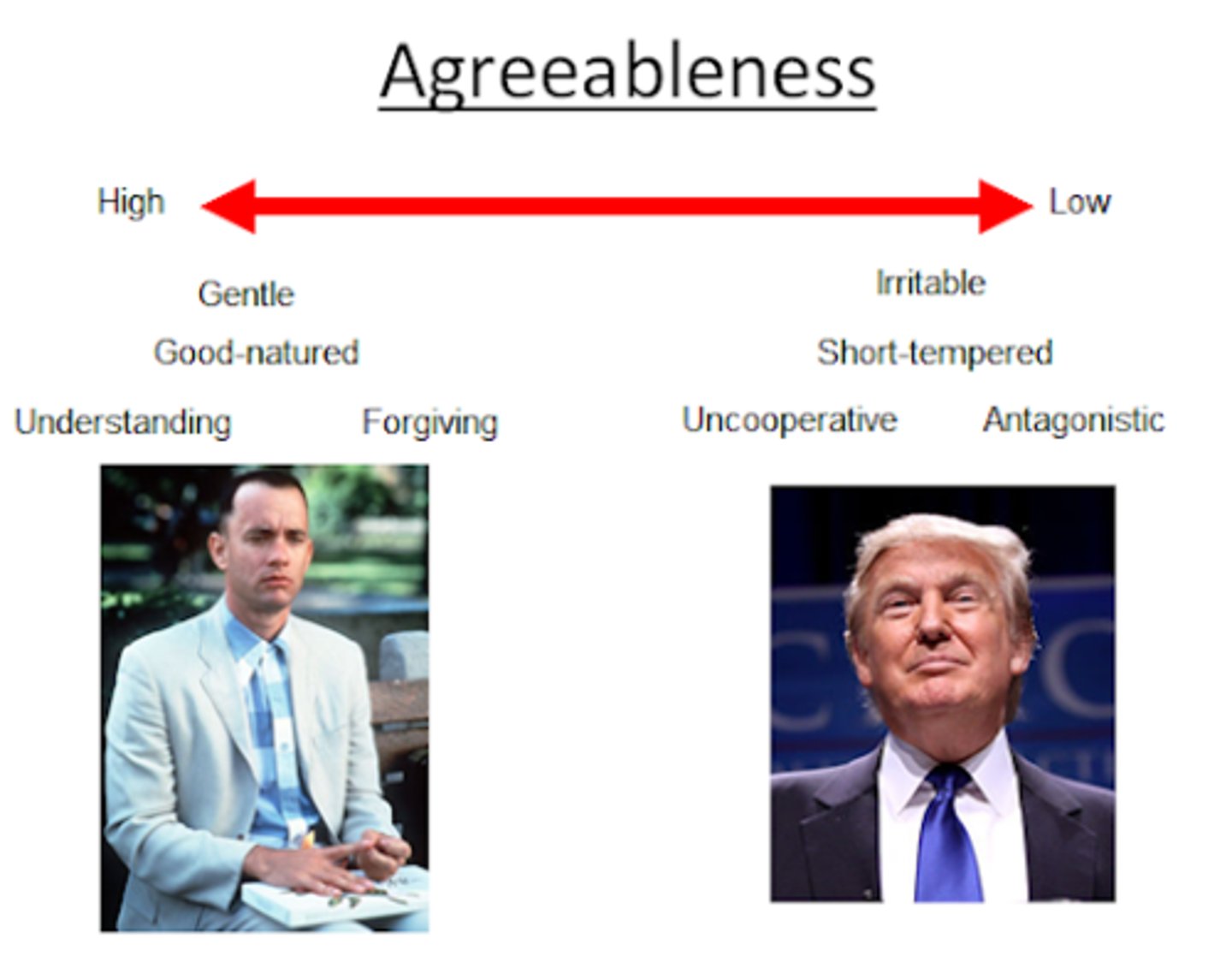
Openness
A personality trait within the "Big Five" model, signifying a person's willingness to try new things, embrace novel experiences, and be receptive to new ideas, essentially indicating how open-minded someone is.

Extraversion
A personality trait characterized by being outgoing, sociable, energetic, and gaining energy from social interactions, essentially describing someone who thrives in social situations and enjoys being around others.

Conscientiousness
A personality trait characterized by being responsible, organized, careful, and diligent, essentially describing someone who is reliable, goal-oriented, and adheres to norms and rules, often displaying self-discipline and a strong work ethic.

Personality Inventory
A type of psychological test, usually in the form of a questionnaire, designed to assess a wide range of personality traits by asking individuals to respond to statements about their feelings and behaviors, allowing for the evaluation of multiple traits simultaneously; a common example is the Minnesota Multiphasic Personality Inventory (MMPI).
